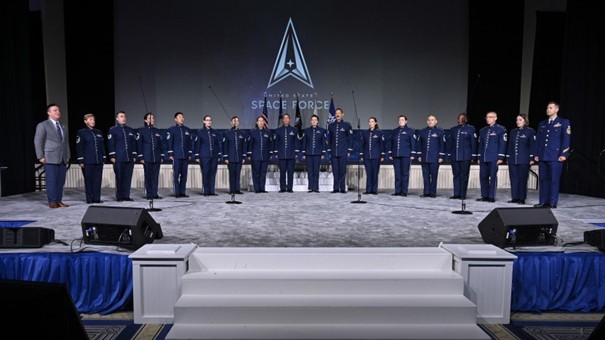A New Era of Space Exploration
The race for space has reignited — but this time, it’s not just governments leading the charge. Private corporations, backed by billionaire visionaries, are transforming outer space from a domain of science fiction into a commercial reality. Companies like SpaceX, Blue Origin, and Virgin Galactic are at the forefront of what experts call “Space Race 2.0,” where technology, politics, and ambition collide.
- A New Era of Space Exploration
- The Billionaire Astronauts and Their Ambitions
- Political Implications of Space Expansion
- Technology That Defines the Future
- The Global Impact and Environmental Concerns
- Cultural Influence and the New Celebrity Frontier
- The Economics of Outer Space
- The Role of International Cooperation
- FAQs
- Conclusion
Unlike the Cold War-era competition between the United States and the Soviet Union, today’s space race is fueled by profit, innovation, and influence. The goals extend beyond planting flags — now, the objectives are satellite networks, lunar mining, space tourism, and eventually, human settlement on Mars. This blending of private ambition and public interest marks a turning point in humanity’s relationship with the cosmos.
The Billionaire Astronauts and Their Ambitions
At the center of this revolution stand tech moguls like Elon Musk, Jeff Bezos, and Richard Branson. Each has a different vision of what space exploration should mean. Musk’s SpaceX aims to make humanity a multiplanetary species, with colonization of Mars as its ultimate goal. Bezos’s Blue Origin promotes long-term space habitation to preserve Earth’s resources, while Branson’s Virgin Galactic focuses on making space tourism accessible to the wealthy elite.
Their rivalry is as much about prestige as innovation. Musk’s successful reusable rocket launches have reshaped the economics of space travel, reducing costs dramatically. Bezos’s advances in heavy-lift technology and orbital infrastructure promise to sustain long-term missions. Meanwhile, Branson’s suborbital flights have brought space closer to pop culture, turning exploration into an experience rather than just a scientific pursuit.
Celebrities, too, are joining the cosmic wave. Figures like Tom Cruise and Leonardo DiCaprio have reserved seats for upcoming spaceflights, while pop culture increasingly romanticizes interplanetary travel. Space has once again become the ultimate symbol of aspiration — where technology meets human imagination.
Political Implications of Space Expansion
Beyond the glamour and excitement, the new space race carries profound political consequences. Governments are once again asserting dominance over orbit and beyond. The United States established the U.S. Space Force to protect national interests, while China’s growing presence in orbit and its lunar missions have raised concerns about militarization. Russia, Europe, and India are also intensifying their space programs, each seeking influence in what some analysts now call “the new high ground.”
The question of space law is becoming increasingly complex. Who owns the Moon? Who regulates asteroid mining or satellite traffic? The Outer Space Treaty of 1967, once a cornerstone of cooperation, now appears outdated in the face of commercial exploration. As corporations claim stakes in orbit, policymakers are racing to prevent a celestial version of the 19th-century land rush.
Technology That Defines the Future
The pace of technological progress in space exploration is astonishing. Reusable rockets, autonomous landing systems, and AI-guided navigation are making missions safer and cheaper. Satellite constellations like Starlink are revolutionizing global communication, bringing internet access to remote regions — and reshaping geopolitical power in the process.
Artificial intelligence plays a central role in this new frontier. AI systems analyze space data, manage onboard operations, and even assist astronauts in real time. Robotics, too, are essential — from lunar rovers to Mars drones, these machines extend human capability far beyond Earth’s limits. As technology evolves, the barriers between science fiction and science fact are collapsing faster than ever before.
The Global Impact and Environmental Concerns
While space offers infinite opportunity, it also poses new risks. The rapid increase in satellite launches has created a growing threat known as “space debris.” Thousands of defunct satellites and rocket fragments orbit the Earth, endangering active spacecraft and future missions. The problem is so severe that scientists warn of a potential “Kessler Syndrome,” where cascading collisions could make orbit nearly impassable.
Back on Earth, the environmental costs of rocket launches and manufacturing are being scrutinized. Each mission leaves behind significant carbon emissions, and critics argue that billionaires’ space adventures prioritize ego over sustainability. Environmentalists are calling for greener propulsion technologies and stricter regulations to minimize ecological damage.
Cultural Influence and the New Celebrity Frontier
The modern space race has captured the imagination of artists, filmmakers, and influencers. From blockbuster movies to digital campaigns, outer space has become a cultural symbol of ambition and possibility. Celebrities now endorse tech companies involved in space innovation, turning science into a lifestyle trend.
Even fashion brands and social media influencers are tapping into the aesthetics of the new space age — metallic designs, futuristic visuals, and cosmic branding dominate global campaigns. NASA collaborations with luxury designers and tech firms have made space culture fashionable again. It’s no longer just about rockets — it’s about identity, innovation, and inspiration.
The Economics of Outer Space
The global space economy is booming. Analysts estimate that the industry could surpass $1 trillion by 2040. Beyond space tourism and satellite networks, future profits lie in asteroid mining, lunar construction, and interplanetary logistics. Companies are already researching how to extract rare minerals from asteroids or build solar farms in orbit.
This shift represents more than economic opportunity — it’s a redefinition of capitalism itself. Space is becoming the new frontier for competition, investment, and innovation. But as the race intensifies, questions about equity, access, and sustainability grow louder. Will space become a playground for the rich or a shared resource for humanity?
The Role of International Cooperation
Despite rising competition, cooperation remains essential. The International Space Station stands as a symbol of what global unity can achieve. Projects like NASA’s Artemis program and the European Space Agency’s lunar partnerships show that collaboration can coexist with rivalry. Yet, geopolitical tensions threaten to fracture this fragile unity.
As nations like China and India pursue independent missions, some experts warn of a divided space era — one where collaboration gives way to competition. Maintaining peaceful exploration will require diplomacy, transparency, and shared ethical frameworks.
FAQs
Who are the main players in the new space race?
The leading participants include SpaceX, Blue Origin, Virgin Galactic, NASA, China’s CNSA, and the European Space Agency.
Why are billionaires investing in space?
They view space exploration as both a business opportunity and a legacy project, aiming to secure humanity’s future beyond Earth while building new industries.
What are the political risks of space commercialization?
Private ownership and militarization could lead to conflicts over resources, satellite interference, and control of orbital territories.
How does space exploration affect the environment?
Rocket launches contribute to carbon emissions, and the growing amount of space debris poses a serious hazard to future missions.
Is space tourism safe?
While progress has been made, space tourism remains in early stages, with safety, cost, and accessibility still under development.
Conclusion
The modern space race embodies the best and worst of human ambition. It showcases our ingenuity, courage, and curiosity — but also our competitiveness, greed, and fragility. Billionaires are transforming the heavens into marketplaces, while governments view orbit as the new frontier of geopolitical power.
Yet amid the politics and profit, space remains humanity’s greatest shared dream. It represents the unknown, the infinite, and the hope of renewal. As we stand at the dawn of a new cosmic age, the challenge is not just to reach the stars — but to ensure that when we do, we take our humanity with us.
















